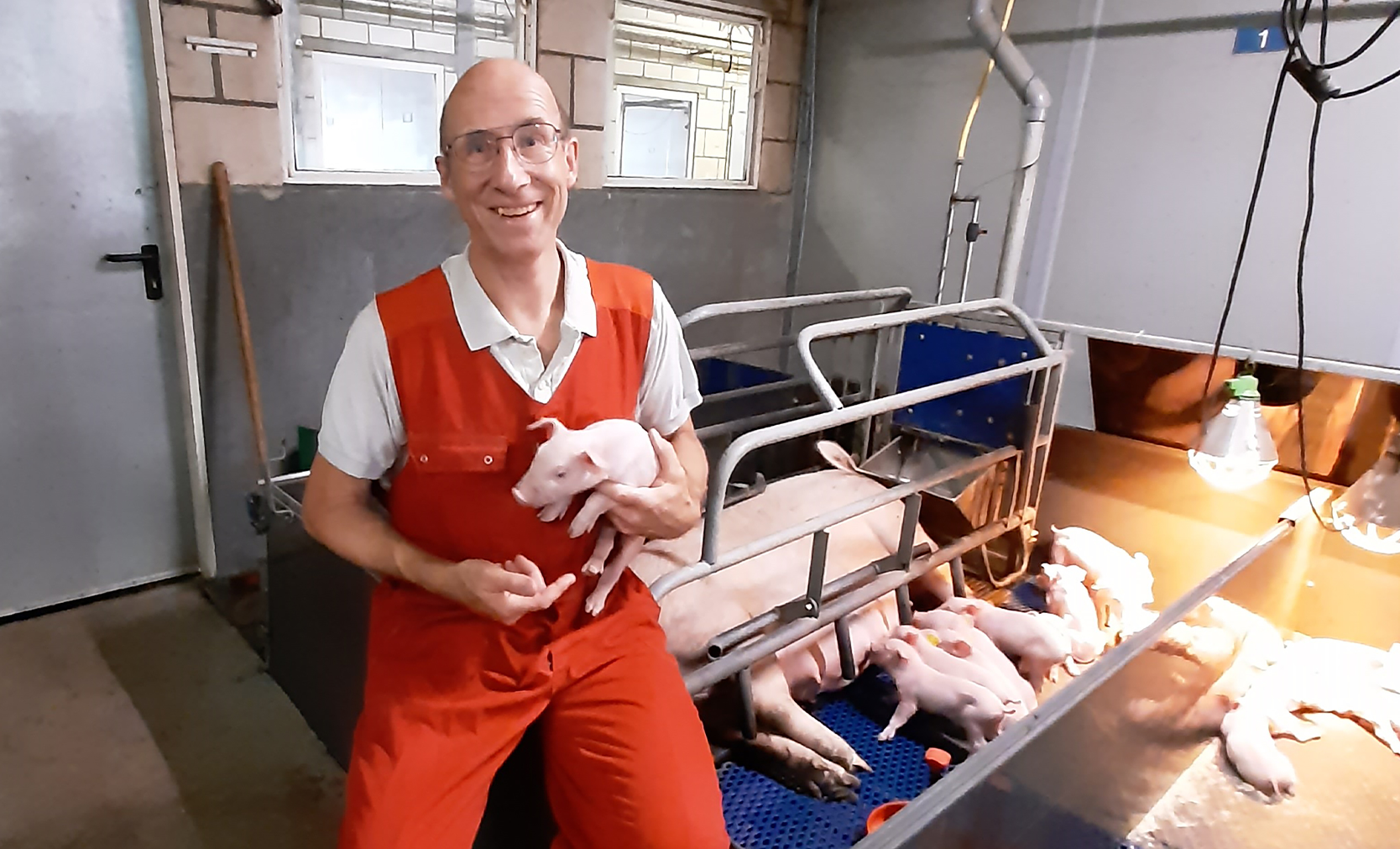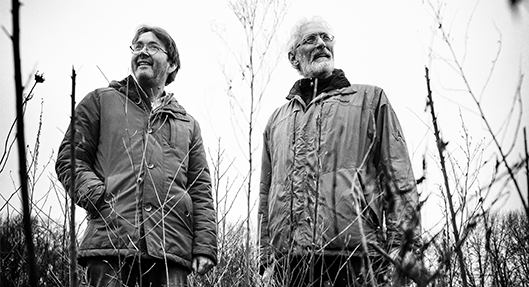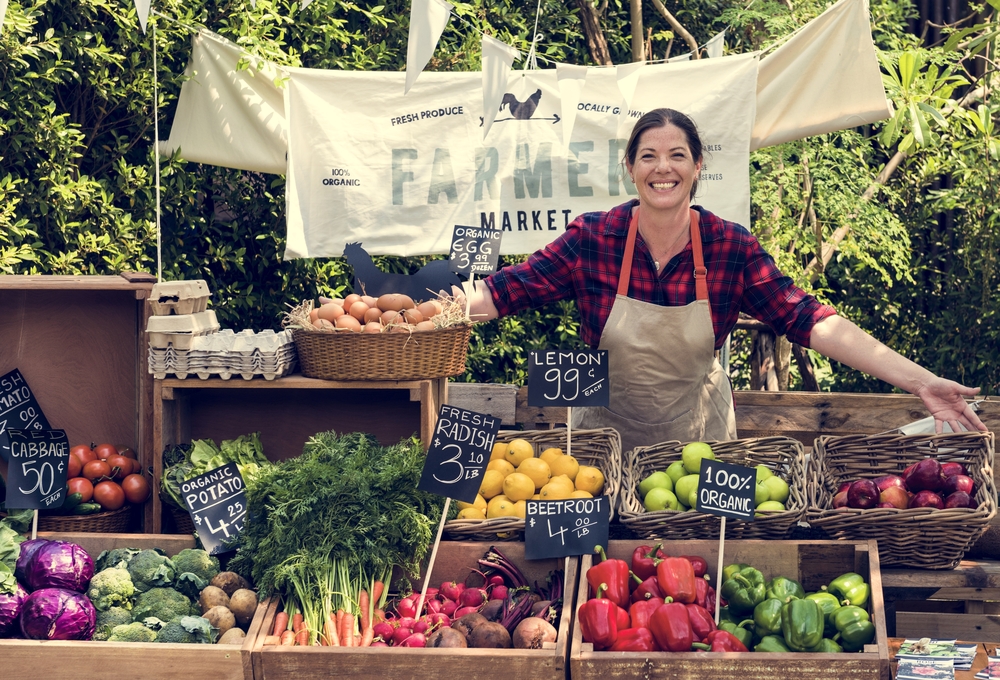WUR’s stalls welcomed 96 new piglets this month. They are playing the leading role in a study to answer the question of whether organic food is healthier.
Let’s start with the disclaimer. The experiment says little or nothing about the health effects of organic food on people, as project leader Herman Vermeer (Wageningen Livestock Research, Animal Health & Welfare) makes very clear. ‘The experiment gives absolutely no answer to the question of what organic food does in people. For that, you need to do studies on humans. But if you don’t find any effects in this experiment with pigs, it doesn’t make much sense to go looking for effects in humans.’
The experiment gives no answer to the question of what organic food does in people
The pig experiment was commissioned by the then Ministry of Agriculture, Nature and Food Quality and has a long and turbulent history (see inset), dating back to a similar experiment in 2007 but with chickens. This time, pigs were chosen instead of chickens. ‘Humans and pigs are much more similar physiologically,’ Vermeer says. ‘We are basically vertical pigs.’ An experiment with humans would be the most ideal, but that is not feasible. ‘We can keep all conditions the same with these pigs, so only the feed is different. That’s impossible with people, and you would therefore need to run the experiment for decades to get the same information. It’s practically and ethically unfeasible.’
Virus and fast food
The pig experiment is simple in essence. Piglets are reared on organic or conventional feed and are then exposed to one of two interventions: a vaccination or unhealthy feed. The consequences of that on the animal’s health and resilience are meticulously assessed. The vaccination is an attenuated live PRRS virus, where PRRS means porcine reproductive and respiratory syndrome. The unhealthy fodder is like fast food, food with a lot of sugar. Both interventions provoke a response in the immune system, and therefore test the pig’s resilience.
A lot of preparation is behind this basically straightforward approach. Even getting the permits for the experiment took a year and a half, according to Vermeer. ‘It’s about a nutritional challenge: the animals are given meals they aren’t used to. To measure how the immune system responds to that, a cannula is inserted in them that allows us to tap blood. And at the end of the experiment, all animals are put to sleep so we can take various samples.’
We are basically vertical pigs
In addition to the permits, compiling the feed also took a lot of time. Vermeer: ‘We purchased conventional feed and organic feed — from multiple parties from all over Europe for both categories. The fodder was then examined extensively and screened for composition and contaminants. Then mixtures were made for use throughout the trial.’ Just to be clear, the pigs are given normal pig feed, not a human diet with vegetables or animal protein.
Sows
The 96 piglets now being reared on campus are the daughters of 24 sows. They were born on a breeding farm and all have the same father to eliminate genetic differences as much as possible. Remarkably, half of the piglets have been raised on organic feed from conception, meaning the mother was fed organic feed during pregnancy. ‘If you start the experiment at a later age, the effect is probably smaller,’ says Vermeer. ‘And so the chance that you discover an effect is also smaller. We want to create as big a contrast as possible due purely to the feed.’ The choice for one sex was made to prevent m/f hormonal influences. ‘We chose to go with females because they might react more to the interventions.’
The experiment ends in March. The piglets will then have grown into pigs weighing about 80 kilos. Vermeer says the results of the investigation are not expected until the end of next year. The organic world is eagerly waiting for those results. The researchers are already considering how to prevent any bickering about the conclusions this time. Vermeer: ‘We are working on identifying all the possible outcomes and scenarios. Suppose one indicator points one way and another points in another direction, what would your conclusion be? We are trying to reach a consensus with all the parties about that beforehand. You don’t want to have any arguments afterward.’
Zembla
The pig experiment has a long and turbulent history. It started in 2007 with the presentation of the report Biologisch Gezonder? (‘Is Organic Healthier?’), about an experiment with chickens that were fed conventional or organic feed. The report concluded that the scientific evidence for positive health effects from organic feed is too weak. The TV programme Zembla questioned that conclusion four years ago. It claimed positive health effects were swept under the carpet under great pressure from TNO, one of the participating parties. The broadcast led to Parliamentary questions and eventually the commission of a new investigation by the then Agriculture minister Carola Schouten. WUR is now carrying out this study in partnership with Utrecht University and the Louis Bolk Institute.

 Herman Vermeer with some of the piglets in the experiment. Own photo
Herman Vermeer with some of the piglets in the experiment. Own photo 

